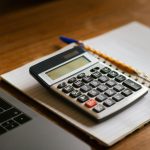Understanding Mortgage Loan Fraud Audits: A Critical Tool for Protecting Your Financial Interests
In the complex world of mortgage loans, ensuring that all transactions are above board is essential for both lenders and borrowers. Mortgage loan fraud audits are a critical process designed to identify, prevent, and correct fraudulent activities within the loan process. Whether you’re a financial institution or a borrower, understanding the importance of these audits and how they can safeguard your interests is paramount. This comprehensive guide delves into the world of mortgage loan fraud audits, discussing the significance, methods, and benefits while shedding light on how these audits can protect your financial future.
What is Mortgage Loan Fraud?
Mortgage loan fraud refers to any illegal act where misrepresentation, omission, or falsification of documents occurs during the mortgage application or approval process. It can happen in several forms, such as falsifying income statements, inflating property appraisals, or misrepresenting a borrower’s financial condition. The goal of these fraudulent actions is often to secure a mortgage loan under false pretenses, leading to financial gains for the wrongdoers.
For lenders, this type of fraud can result in significant financial loss, while for borrowers, it may lead to the risk of foreclosure or damage to their credit. Mortgage loan fraud audits are crucial in identifying and addressing these fraudulent activities early in the process, ensuring both parties are protected.
Why Mortgage Loan Fraud Audits Are Essential
The importance of mortgage loan fraud audits cannot be overstated. Fraud in the mortgage industry is a growing concern, especially with the increasing complexity of loan processes and the rise of digital transactions. A thorough mortgage loan fraud audit provides several key benefits:
- Prevention of Financial Loss:Identifying fraudulent activity early in the mortgage process helps prevent significant financial losses for both lenders and borrowers. By flagging suspicious activities before a loan is granted or processed, an audit minimizes the risk of funding fraudulent loans.
- Ensuring Compliance with Regulations:Mortgage loan audits ensure that all transactions comply with federal, state, and local regulations. Lenders are required to adhere to strict rules to prevent fraud, and an audit verifies that these rules are being followed.
- Protecting Lender’s Reputation:Financial institutions face severe reputational damage when they are found to be involved in fraudulent lending practices. A mortgage loan fraud audit helps lenders ensure that their practices remain transparent and above board, protecting their credibility in the marketplace.
- Identifying Weaknesses in the System:Regular fraud audits help identify gaps in a lender’s systems and procedures, allowing them to strengthen their internal controls and reduce the risk of fraud in the future.
Key Components of a Mortgage Loan Fraud Audit
Mortgage loan fraud audits involve a comprehensive review of all documents and processes related to a mortgage application. These audits typically focus on several key components to ensure the loan is legitimate and all information is accurate:
- Loan Application Review:The loan application is the first document a borrower submits during the mortgage process. Auditors review the application for any discrepancies, inaccuracies, or signs of falsification. They verify the borrower’s income, employment status, and other relevant details to ensure that everything is truthful and consistent.
- Income and Asset Verification:Auditors perform a deep dive into the borrower’s financial history. This includes verifying the stated income, employment records, tax returns, and bank statements. If there are any inconsistencies or red flags, they are flagged for further investigation.
- Property Appraisal Examination:Inflating property values is a common form of mortgage fraud. Mortgage loan fraud audits include a thorough review of property appraisals to ensure that the home’s value is accurate and that the appraisal is legitimate. In cases where the value is inflated, auditors can identify the discrepancy and take action.
- Title and Closing Documents:Fraudulent activities can also occur during the closing process. Auditors examine title documents to confirm that the property is clear of any legal disputes and that all information aligns with the mortgage agreement.
- Third-Party Verification:Third-party participants, such as brokers, appraisers, and real estate agents, are often involved in the mortgage process. Auditors review the roles and interactions of these parties to ensure they haven’t been involved in any fraudulent activity.
Types of Mortgage Loan Fraud
There are several types of mortgage loan fraud, each presenting unique risks and challenges. Some of the most common types include:
- Occupancy Fraud:This occurs when a borrower misrepresents the intended use of a property. For instance, a borrower may claim that they will occupy the property as their primary residence when, in reality, they intend to use it as a rental or vacation home. This can lead to loan terms that are more favorable than what the borrower should receive.
- Income Fraud:Income fraud happens when a borrower inflates their earnings or falsifies documents to appear financially stable. This type of fraud is often uncovered during income verification and document review during a mortgage loan fraud audit.
- Appraisal Fraud:Appraisal fraud occurs when a property’s value is artificially inflated to secure a higher loan amount than the property is worth. This often involves collusion between appraisers and borrowers or lenders.
- Identity Theft and Loan Stacking:Fraudsters may steal an individual’s identity and use it to obtain mortgage loans in their name. Loan stacking refers to the practice of applying for multiple loans from different lenders to exploit the system before the fraud is detected.
- Straw Borrower Fraud:In straw borrower fraud, an individual with good credit applies for a mortgage loan on behalf of someone else, who may not be eligible for a loan due to poor credit or financial instability. The straw borrower is often compensated for their role, while the true borrower benefits from favorable loan terms.
How Mortgage Loan Fraud Audits Protect Borrowers
While mortgage loan fraud audits are primarily designed to protect lenders, they also offer critical protection for borrowers. Here are a few ways mortgage loan fraud audits safeguard borrowers:
- Ensuring Loan Accuracy:Mortgage loan fraud audits ensure that borrowers receive the correct loan amount and terms based on accurate information. By verifying that all information is truthful and complete, auditors help prevent borrowers from being misled into unfavorable loan agreements.
- Identifying Errors Before Closing:If there are any discrepancies in the loan documents, a mortgage loan fraud audit can uncover them before the closing process. This gives the borrower an opportunity to correct any errors, ensuring that the loan is in their best interest.
- Preventing Foreclosure Risks:In cases where mortgage fraud has been perpetrated, the borrower may face the risk of foreclosure. Mortgage loan fraud audits identify fraudulent activity early, preventing borrowers from unknowingly entering into a loan that could lead to foreclosure down the road.
The Mortgage Loan Fraud Audit Process
The mortgage loan fraud audit process involves several steps that require a detailed, methodical approach. These steps typically include:
- Document Collection:The audit begins with the collection of all relevant mortgage-related documents. This includes the loan application, income verification documents, appraisal reports, title documents, and any other paperwork related to the transaction.
- Document Review:Auditors meticulously review each document to identify any discrepancies or fraudulent activity. They look for signs of altered information, such as discrepancies in income, inflated property appraisals, or misrepresentations of the borrower’s financial status.
- Verification of Information:Information provided by the borrower and third parties is cross-checked with external records. This may involve contacting employers, verifying bank account balances, or reviewing tax returns. Any inconsistencies are flagged for further investigation.
- Reporting Findings:Once the audit is complete, the auditor compiles a detailed report outlining any instances of fraud or potential fraud. This report serves as a critical tool for lenders to take corrective action or decide whether to approve or deny the loan.
- Recommendations for Action:Based on the findings, auditors may provide recommendations for corrective actions, such as contacting the borrower for clarification, denying the loan application, or reporting the fraudulent activity to the authorities.
Benefits of Mortgage Loan Fraud Audits
Mortgage loan fraud audits provide several valuable benefits to both lenders and borrowers, including:
- Risk Mitigation:By identifying fraudulent activities early in the loan process, mortgage loan fraud audits reduce the risk of financial loss and reputational damage.
- Regulatory Compliance:These audits help ensure that lenders comply with regulations and avoid penalties for improper lending practices.
- Loan Integrity:Fraud audits maintain the integrity of the mortgage lending system by ensuring that all transactions are based on truthful and accurate information.
- Improved Financial Decision Making:For borrowers, mortgage loan fraud audits help ensure that they are making informed decisions regarding their mortgage, reducing the likelihood of entering into a financially risky agreement.
Conclusion: The Critical Importance of Mortgage Loan Fraud Audits
In a world where mortgage fraud is increasingly prevalent, mortgage loan fraud audits serve as a crucial tool in protecting both lenders and borrowers. By thoroughly investigating all aspects of the mortgage loan process, these audits help prevent fraud, ensure compliance with regulations, and protect financial interests. Whether you’re a borrower or a lender, conducting regular mortgage loan fraud audits is essential to maintaining a trustworthy and secure mortgage environment.
Call to Action
Mortgage loan fraud is a serious issue that requires careful attention. Protect your financial future and ensure your mortgage process is transparent and secure. Contact us today at (877)-399-2995 or visit Mortgage Audits Online to learn more. Secure your financial future with confidence!




